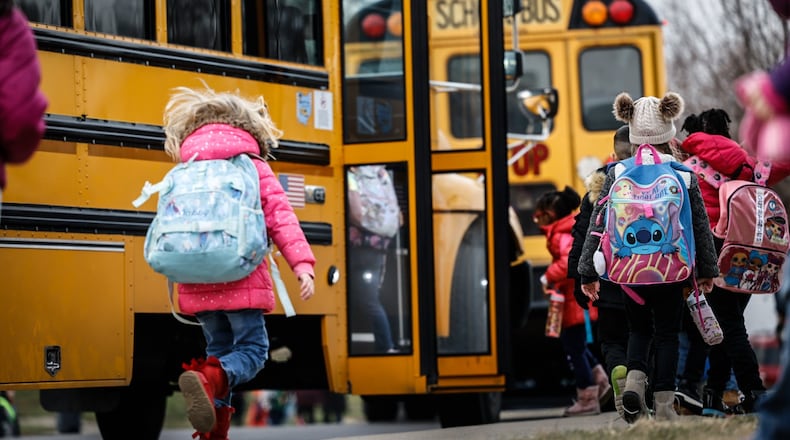Superintendent Jason Enix said the school board will determine next steps based on the state education budget for 2024-2025 — usually approved in June — and how that may affect its five-year forecast.
“We’re disappointed that this was not successful, but I think the key here is that we have the opportunity to regroup once we have all of the variables that go into a school district’s budget finalized,” Enix said. “This was one of those variables, and the state budget is the next one, so once we see all of those things finalized, it gives us a chance to really look at our five-year forecast, to see what’s been done by the district to cut costs and reallocate some federal funding, and see where all of that is going to land us.”
The Vandalia-Butler school district’s five-year additional 1% income tax request failed Tuesday by a nearly 20-point margin, with results showing 40.7% of votes in favor and 59.3% against.
District spokeswoman Mary Stephens affirmed Tuesday the district will implement its previously announced plan to cut $1.8 million in costs beginning this fall. Stephens said the district will ask voters again this fall to approve a levy, the details of which will be determined at a later date.
“While a specific tax rate has not been approved, the district will begin these discussions and explorations immediately,” she said.
Elsewhere in the region, voters in the Mad River and Northmont districts also rejected large new school tax levies. But smaller levy requests from five school districts across Greene and Warren counties (Beavercreek, Fairborn, Xenia, Franklin, Carlisle) were approved.
Huber Heights details
Huber Heights’ levy request was the largest new-money school property tax levy in the past decade in the four-county area — Montgomery, Miami, Greene and northern Warren.
District officials had called its passage crucial in maintaining financial security for the long term, but the schools’ financial picture is complex.
On the one hand, Huber Heights spent more than it took in last school year, and voters have not passed a school levy that increased taxes for daily expenses since 2005. Of the 20 largest school districts in the Dayton area, only Xenia has gone longer, according to Dayton Daily News research.
On the other hand, via several previous years of operating in the black, Huber Heights’ cash balance at the end of last school year ($57 million) represented 75% of a year’s expenses, roughly double the state average and one of the highest figures in the region.
Enix speculated there are a variety of reasons that may have led voters in his district to deny the levy.
“People work for their hard-earned money and sometimes it comes down to strictly finances for individuals (and) to uncertainty of financial futures,” he said. “We know, obviously, inflation and the cost of everything is going up and that certainly puts a squeeze on family budgets, which we understand, as it’s putting the squeeze on our school district budget, too. It’s a challenging time.”
Earlier this year, the district approved a $1.7 million budget cut, which will go into effect during the 2023-24 school year, and will include some cuts to administration, classified personnel, and anticipated hiring, as well as the reallocation of federal grants, and reduction of funding for things like after-school tutoring and staff training. The school board tabled larger cuts for now.
Vandalia-Butler details
If approved, Vandalia’s levy would have lasted five years and generated about $6.4 million per year for the schools. A 1% tax would have cost $500 per year for a person with $50,000 in qualifying income.
Vandalia-Butler schools have operated in the red each of the past three years, spending a total of $5.8 million more than they took in during that time. As a result, at the end of last school year, they had about 23% of a year’s expenses in the bank, lower than the regional average of 35-40%.
The district’s cuts are expected to include a reduction of one position out of three expected retirements; cutting eight teaching assistants, three tutors and two aides, all through Miami County Education Service Center contracts, and discontinuing the sign language program.
If a new-money levy is not approved by November 2023, further cuts of about $2.8 million are anticipated, including more than 18 teacher positions and reductions in programs like art and physical education for elementary kids.
More schools coverage
Check our Sunday edition for updates on the Northmont and Mad River school districts’ plans after their levies also were rejected.
About the Author


